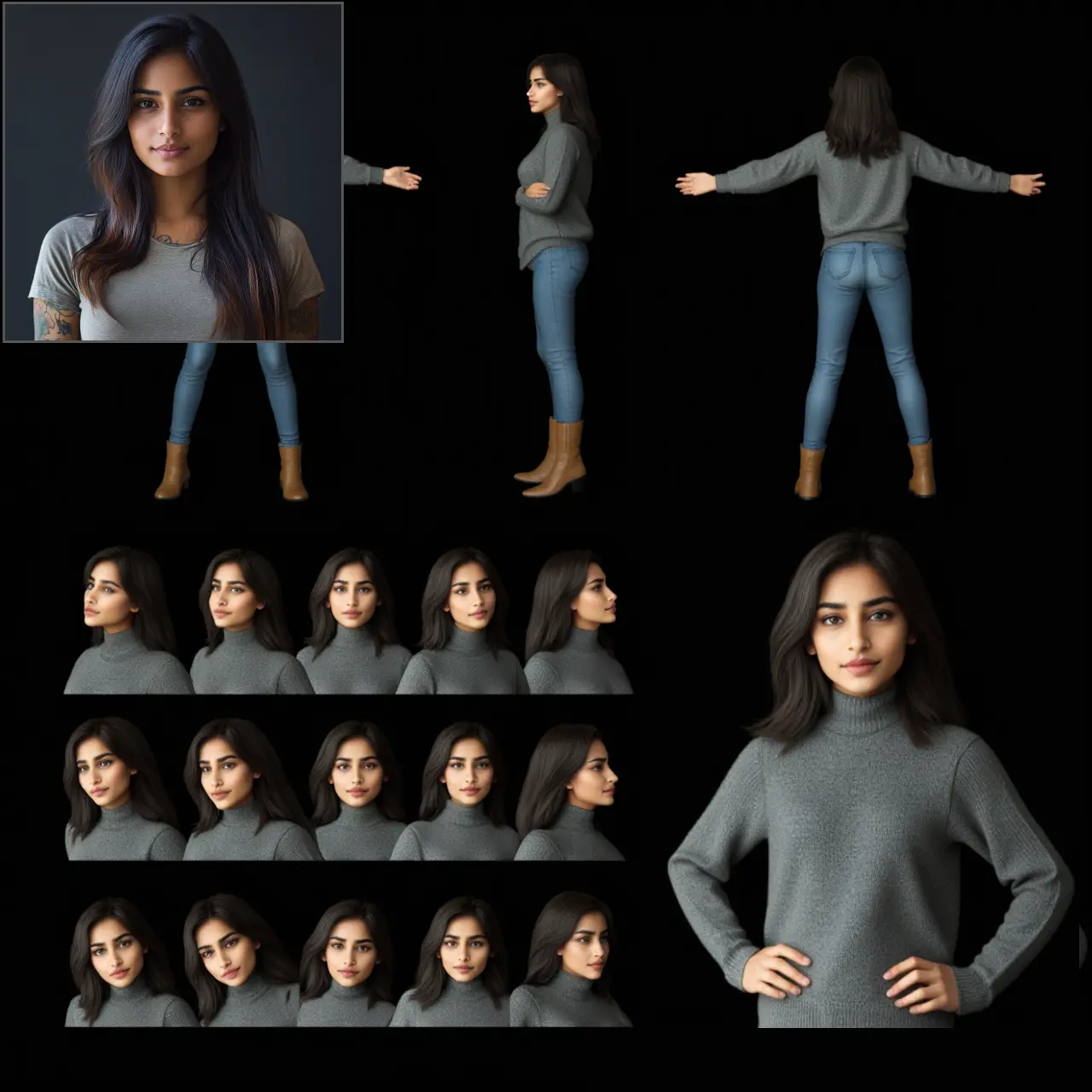ComfyUI Node: Load images from disk
LF_LoadImages
Category✨ LF Nodes/IO Operations
lucafoscili (Account age: 2319days) Extension
LF Nodes Latest Updated
2025-02-21 Github Stars
0.05K
How to Install LF Nodes
Install this extension via the ComfyUI Manager by searching for LF Nodes- 1. Click the Manager button in the main menu
- 2. Select Custom Nodes Manager button
- 3. Enter LF Nodes in the search bar
Visit ComfyUI Online for ready-to-use ComfyUI environment
- Free trial available
- 16GB VRAM to 80GB VRAM GPU machines
- 400+ preloaded models/nodes
- Freedom to upload custom models/nodes
- 200+ ready-to-run workflows
- 100% private workspace with up to 200GB storage
- Dedicated Support
Load images from disk Description
Facilitates loading local disk images into ComfyUI for AI artists, streamlining workflow and enhancing productivity.
Load images from disk:
The LF_LoadImages node is designed to facilitate the loading of images from your local disk into the ComfyUI environment. This node is particularly useful for AI artists who need to work with multiple images simultaneously, as it streamlines the process of importing image files into your workflow. By leveraging this node, you can easily access and manipulate a variety of image files, making it an essential tool for tasks that require batch processing or the integration of external image assets. The primary goal of the LF_LoadImages node is to provide a seamless and efficient method for loading images, thereby enhancing your productivity and creative capabilities.
Load images from disk Input Parameters:
file_names
This parameter expects a list of file names separated by semicolons (e.g., file1.jpg;file2.png;file3.jpg). It specifies the images you want to load from your local disk. The function of this parameter is to identify and locate the image files within the specified directory. The impact of this parameter on the node's execution is significant, as it directly determines which images will be loaded and processed. There are no minimum or maximum values for this parameter, but it is essential to ensure that the file names are accurate and the files exist in the specified directory to avoid errors.
Load images from disk Output Parameters:
images
This output parameter returns a list of loaded images. Each image in the list corresponds to a file name provided in the input parameter. The function of this parameter is to provide access to the actual image data, which can then be used for further processing or manipulation within the ComfyUI environment. The importance of this output lies in its role as the primary data source for subsequent nodes and operations in your workflow. The interpretation of the output value is straightforward: it is a collection of image objects that you can use as needed.
file_names
This output parameter returns the list of file names that were successfully loaded. The function of this parameter is to confirm which files were processed and to provide a reference for the loaded images. The importance of this output is that it allows you to verify the input and ensure that all intended files were correctly loaded. The interpretation of the output value is a simple list of strings, each representing a file name.
output_creation_dates
This output parameter returns the creation dates of the loaded images. The function of this parameter is to provide metadata about the images, which can be useful for organizing and managing your files. The importance of this output is that it offers additional context and information about the images, which can be valuable for tasks that require chronological sorting or tracking. The interpretation of the output value is a list of dates corresponding to the creation times of the images.
count
This output parameter returns the total number of images loaded. The function of this parameter is to provide a quick summary of the number of files processed. The importance of this output is that it allows you to verify the completeness of the loading operation and ensure that all intended images were included. The interpretation of the output value is a single integer representing the count of loaded images.
selected_image
This output parameter returns the image that was selected during the loading process. The function of this parameter is to highlight a specific image from the batch, which can be useful for focused processing or display. The importance of this output is that it allows you to easily access and work with a particular image without having to manually search through the list. The interpretation of the output value is an image object representing the selected image.
selected_index
This output parameter returns the index of the selected image within the list of loaded images. The function of this parameter is to provide a reference point for the selected image, making it easier to locate and manipulate within the list. The importance of this output is that it offers a clear and precise way to identify the position of the selected image. The interpretation of the output value is a single integer representing the index of the selected image.
selected_name
This output parameter returns the file name of the selected image. The function of this parameter is to provide a textual reference for the selected image, which can be useful for documentation or further processing. The importance of this output is that it offers a clear and human-readable identifier for the selected image. The interpretation of the output value is a string representing the file name of the selected image.
Load images from disk Usage Tips:
- Ensure that the file names provided in the
file_namesparameter are accurate and exist in the specified directory to avoid errors. - Use the
selected_imageoutput to focus on a particular image for detailed processing or display. - Leverage the
output_creation_datesto organize and manage your images based on their creation times.
Load images from disk Common Errors and Solutions:
File not found error
- Explanation: This error occurs when one or more of the specified file names do not exist in the specified directory.
- Solution: Verify that the file names are correct and that the files are located in the specified directory.
Unsupported image format error
- Explanation: This error occurs when the node encounters an image file with an unsupported format.
- Solution: Ensure that all image files are in supported formats such as JPEG or PNG.
Permission denied error
- Explanation: This error occurs when the node does not have the necessary permissions to access the specified files.
- Solution: Check the file permissions and ensure that the node has the required access rights to read the files.
Load images from disk Related Nodes
RunComfy is the premier ComfyUI platform, offering ComfyUI online environment and services, along with ComfyUI workflows featuring stunning visuals. RunComfy also provides AI Playground, enabling artists to harness the latest AI tools to create incredible art.


